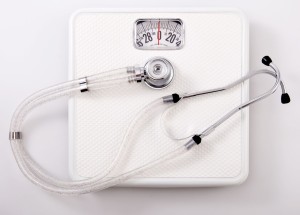 In my Pilates teaching, I often get asked this question: “If I come every day will I see results faster?” It got me thinking, if someone were to train every day would they see results faster or is 2-3 times per week sufficient enough? Joseph Pilates said early on “In 10 sessions you’ll feel the difference, in 20 sessions you’ll see the difference and in 30 sessions you will have a new body”. This was based on a 3x per week plan. But he was a taskmaster and if you trained with him or at his studio, you had to do the exercises perfectly in order to move on to the next. In our society, people have little patience for that method of training. We live in a more is better society too, so more exercise is certainly more beneficial, right? Not exactly.
In my Pilates teaching, I often get asked this question: “If I come every day will I see results faster?” It got me thinking, if someone were to train every day would they see results faster or is 2-3 times per week sufficient enough? Joseph Pilates said early on “In 10 sessions you’ll feel the difference, in 20 sessions you’ll see the difference and in 30 sessions you will have a new body”. This was based on a 3x per week plan. But he was a taskmaster and if you trained with him or at his studio, you had to do the exercises perfectly in order to move on to the next. In our society, people have little patience for that method of training. We live in a more is better society too, so more exercise is certainly more beneficial, right? Not exactly.
The more appropriate question is ‘How often should I train to see the results I want?’ Unless you are a professional athlete, training for a triathlon or preparing to climb Mt. Everest, three times per week for 45-60 minutes is really all you need. Any more than that and you actually make your body vulnerable to injury. If you don’t have the 45-60 minutes to spare you can surely break that time down over seven days (say 20 minutes/day) but to do any kind of resistance training five, six or even seven days per week is overkill.
High intensity exercise, if done too frequently, can actually lead to increased risk of bradycardia (slow heart rate), stroke and even heart failure because the heart muscles become too dilated. That is an extreme scenario, but on the lighter side, you will likely also plateau faster. In other words, you will reach a point where you will no longer see results. Hitting a plateau often leads to giving up and a reversal of your gains up to that point.
Important Things to Think About:
What are your goals? Do you want to be an Olympic athlete or do you just want to be strong and healthy? If you want to be strong and healthy, then you needn’t go crazy. I sometimes hear people proudly say that they came to a class six days in a row. When is your body going to recover? Resting the muscles and allowing them time to start the healing (because building muscle requires the tearing of it first) and building process is important. If you get injured because you are working out so frequently, then you cannot come all together. Is it worth it? The more you work out, the more likely you are to eat more. If you are a professional, you know what to eat and you probably have a nutritionist to guide you. If you are the every day individual, you might over eat and eat the wrong things and actually see a weight gain even though you are working out like crazy. Again, is it worth it?
Slow and steady always wins the race. If there is no need to rush, then don’t. It will likely do you more harm than good.
Jessica Kuiken is a Los Angeles based Pilates instructor. Follow her on Twitter and Facebook and Instagram
Image credit: jerryb7 / 123RF Stock Photo

















-300x200.jpeg)
Very interesting article knowing when to say when about exercise